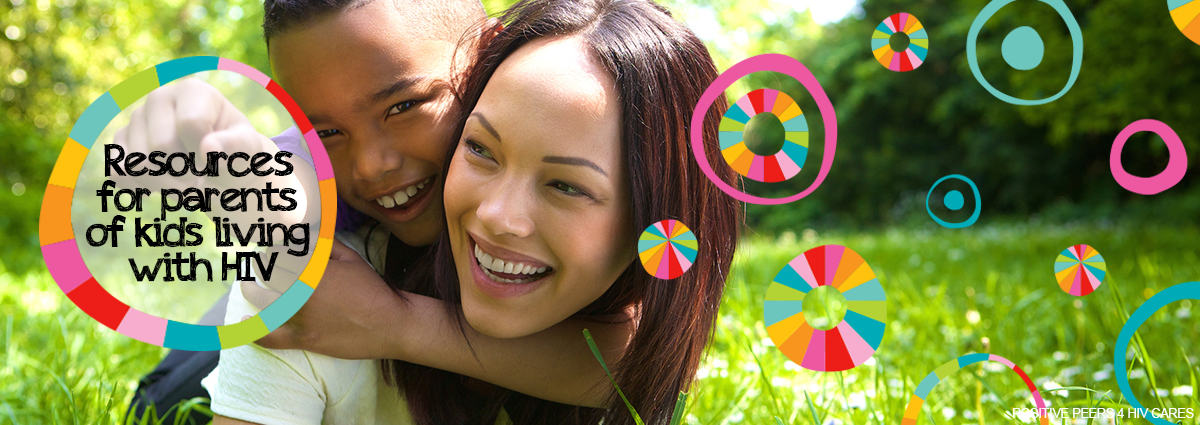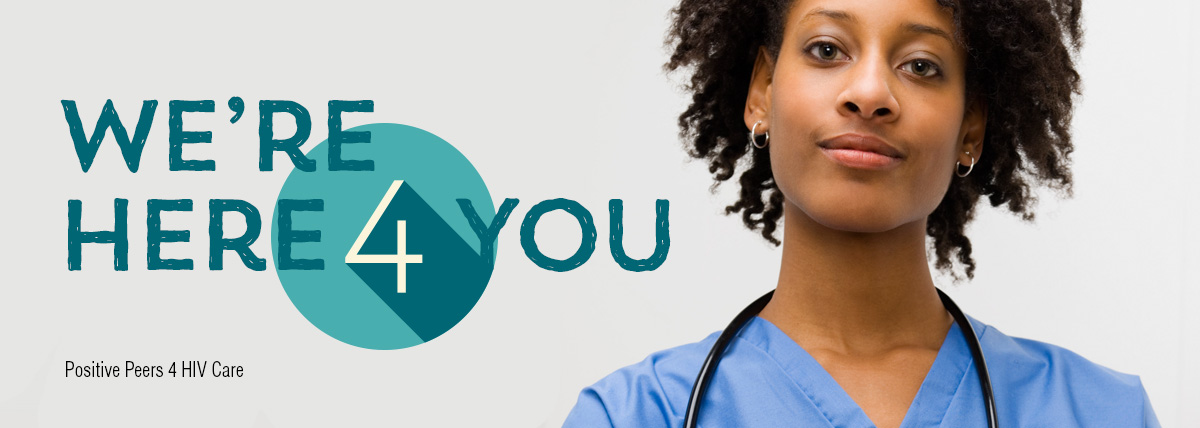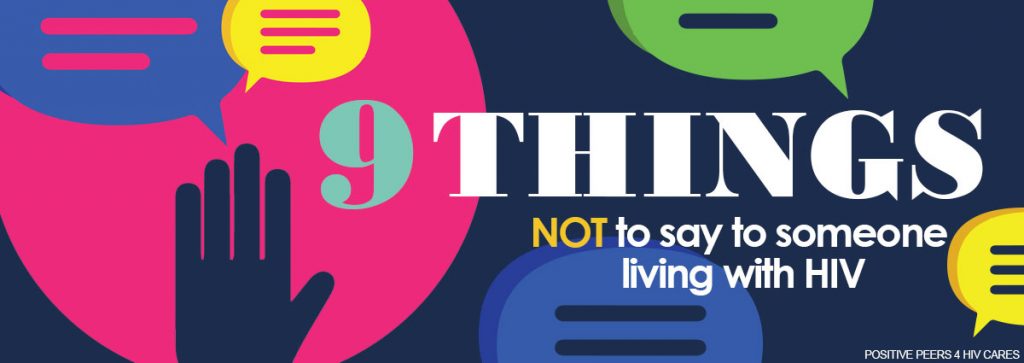
By: Jennifer McMillen Smith, LISW-S, HIV Social Worker at MetroHealth Medical Center and medically reviewed by Ann K. Avery, MD, Infectious Disease Physician at MetroHealth Medical Center
What are the most hurtful, uninformed, and insensitive things people living with HIV hear every day?
It turns out the British Broadcasting Corp. has this topic covered: They posted a clever video recounting some of the worst things people say to people living with HIV. We appreciated it so much that we’re borrowing some of the most bothersome sayings in the video — and, of course, putting a Positive Peers spin on them.
There’s an old saying that goes like this: You can stay silent and have people suspect you’re a fool, or you can speak up and remove all doubt. These nine sentences are in the “remove all doubt” category if you say them to people living with HIV.
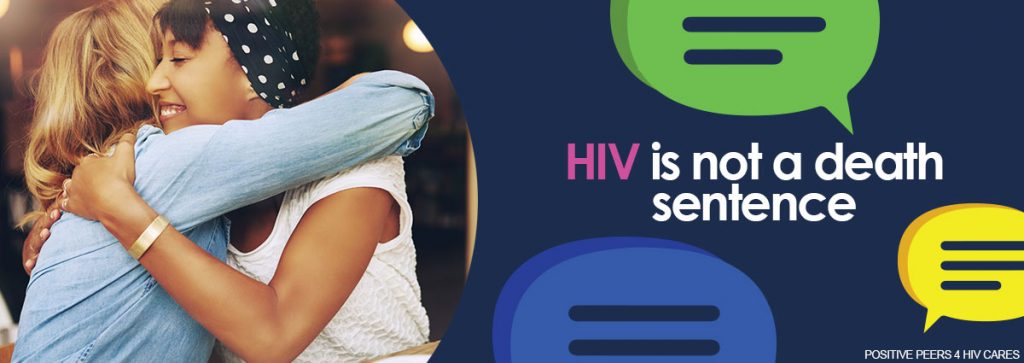
1. “How long have you got left?”
Rude, and here’s why: HIV is not a death sentence — and it hasn’t been for decades. People who stay on their anti-retroviral medications live long, healthy, productive lives. If somebody does not treat their infection and it progresses to AIDS, they are in more danger, but even an AIDS diagnosis can be treated and years added to people’s lives if they get proper care.
What to say instead: “I’m glad to see you’re so healthy and happy.”
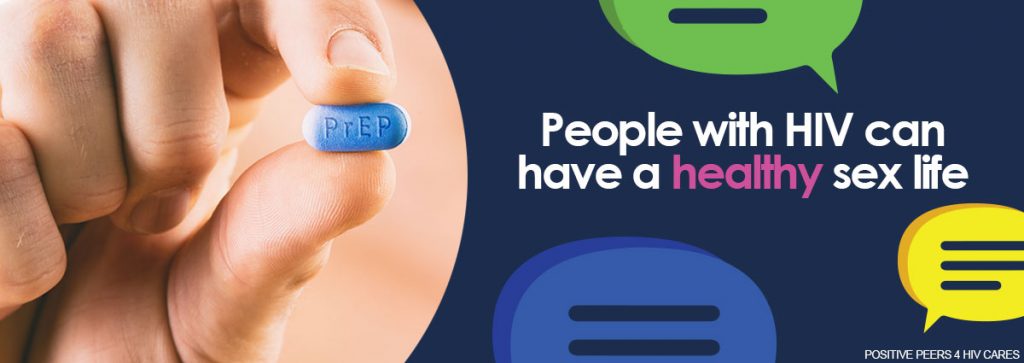
2. “So, you can’t have sex again?”
Rude, and here’s why: People with HIV can have a healthy sex life, just like anybody else. If they stay on their meds consistently and their viral loads remain undetectable, they cannot transmit the virus. People who use precautions like condoms (which prevent other sexually transmitted infections) and PrEP do not have to sacrifice anything when it comes to sex.
What to say instead: “Tell me about who you're seeing now — and let’s double-date.”
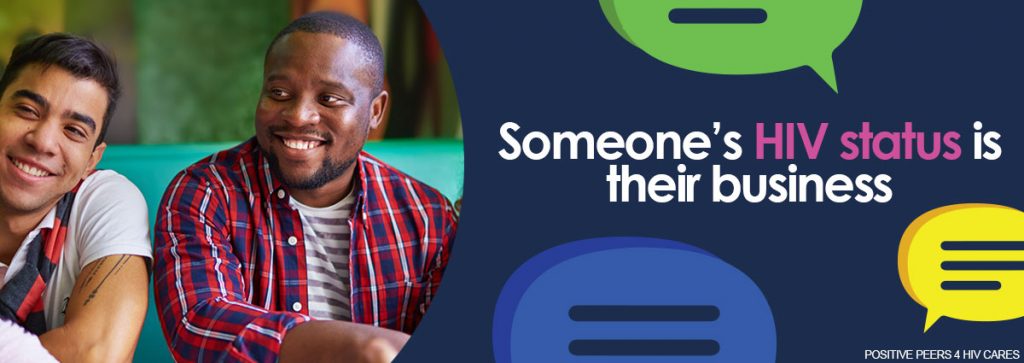
3. “You should tell people about it.”
Rude, and here’s why: Someone’s HIV status is their business, no one else's. While it’s not a good idea to conceal your HIV status from a sex partner, there’s no need to tell anybody else. Disclosing that you are living with HIV can be a scary thing, and it sometimes means you have to deal with people’s prejudices and misconceptions that will just complicate your life. So, if someone you know wants to keep their status private — and trusted you to keep it private, too — you should respect that.
What to say instead: “If you ever need support or someone to talk to, let me know and I’ll be there for you.”
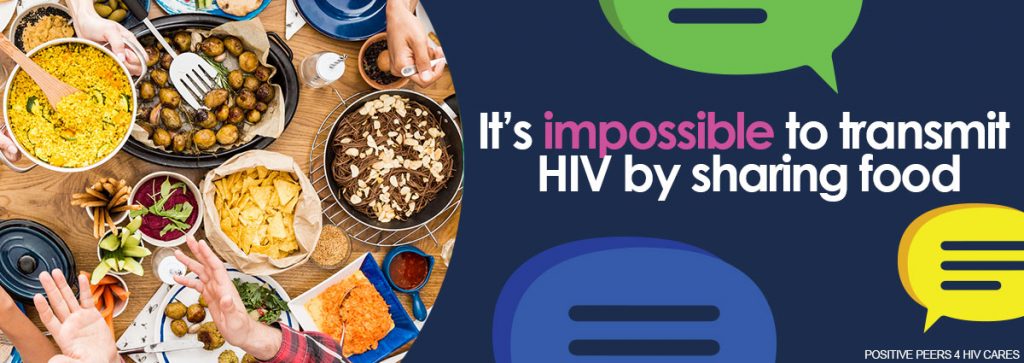
4. “Can I get HIV from sharing food with you?”
Rude, and here’s why: It’s impossible to transmit HIV by sharing food. HIV needs specific transmission paths and fluids to pass from one human to another — and the food on your dinner plate is not one of them. (Not sure how HIV is transmitted? You know we’ve got a blog for that!)
What to say instead: “Can I have a little bite of that chicken salad? It looks delicious!”
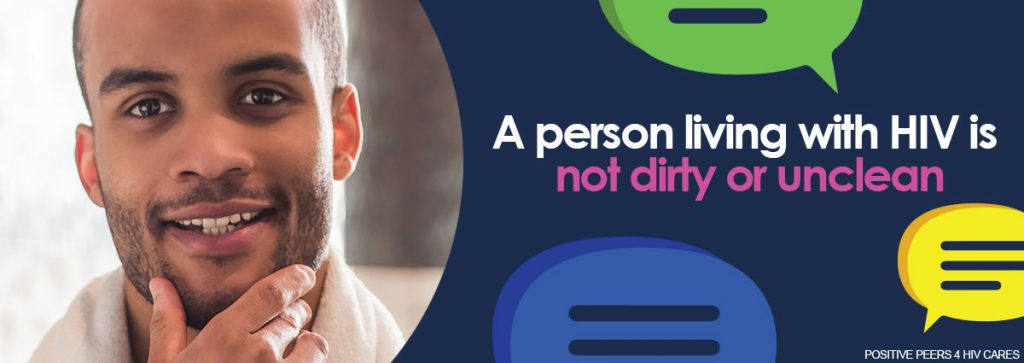
5. “Are you clean?”
Rude, and here’s why: A person who is living with HIV is not “dirty.” Socks and shoes can be dirty, not a person. A person who is HIV negative is not “clean,” either. Now, if you’re on the verge of having sex with somebody, it’s fair game to ask about their status — but you don’t have to be rude about it.
What to say instead: “When was your last HIV test?” Or, “Do you know your HIV status?”
Come join our private, stigma-free, supportive community.
Health management tools with medication & appointment reminders.
Social networking in a community conversation & private chats.
6. “Do you know how you contracted HIV?”
Rude, and here’s why: Maybe they know exactly how they got it — maybe they don’t. But whatever happened, that’s their private business. Plus, some people ask this because they want to know if the person somehow had it coming to him or her (i.e., injected drugs: guilty; a lover’s betrayal: innocent). That’s bogus, insulting, and judgmental.
What to say instead: “How is HIV transmitted? I want to educate myself and others.”
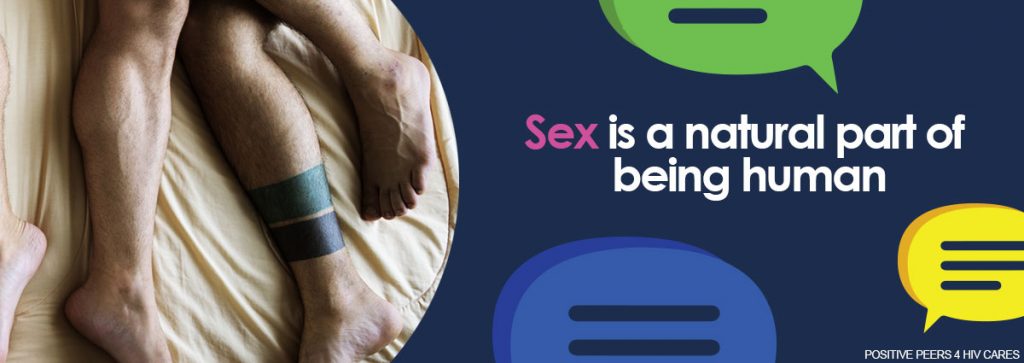
7. “You must be promiscuous.”
Rude, and here’s why: Sex is a natural part of being human, and here at Positive Peers we believe people have every right to have as much or as little consensual sex as they please. You cannot assume from someone’s status how much sex they must have. Nor are you entitled to judge them for their sex life. As it just so happens, it only takes one lapse of judgment to contract HIV. We are all human, we all make mistakes. No one needs to be shamed the rest of their life for a single “oops.”
What to say instead: “If you need a wingman on your next date, I’ve got you! 😀”
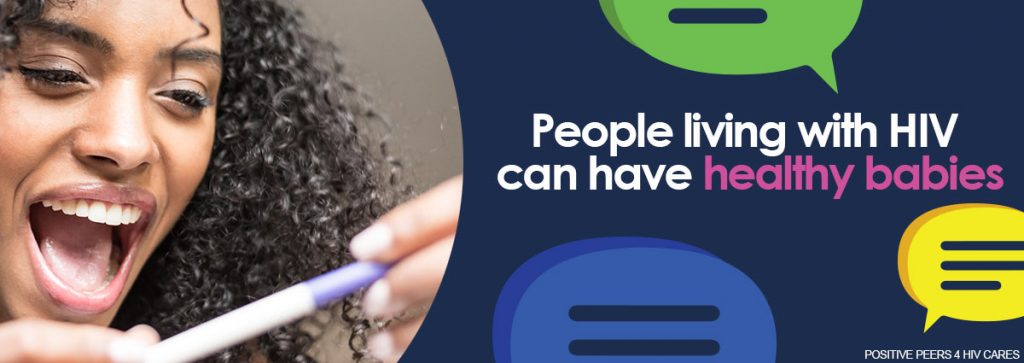
8. “So, you can’t have a family?”
Rude, and here’s why: Because people living with HIV can have healthy, HIV-uninfected children. There are ways to safely conceive and give birth if HIV is in the picture. Modern medicine is incredible, isn’t it?
What to say instead: “Are you and your partner thinking about kids? That’s so exciting, I would love to babysit when the time comes.”
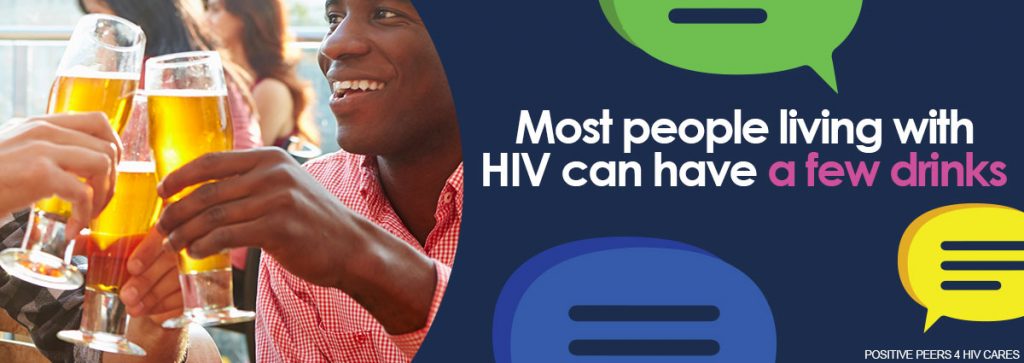
9. “Should you really be drinking/smoking/etc.?”
Rude, and here’s why: Most people living with HIV can drink alcohol in moderation, just like everyone else. Heck, they can even swish down their meds with their favorite local brew if they so choose.
Moral of the story here: anything that’s unhealthy for the general population is also unhealthy for people with HIV.
What to say instead: “Can we take it easy tonight? I’m in the mood to stay in and watch a movie” or, “Let’s get a drink, it’s on me!”
(What else annoys people living with HIV? Check out this article from The Advocate.)
What you should do if you know somebody who’s living with HIV
First of all: Acknowledge that people who are living with HIV are no different than anyone else. They are still the exact same person you knew before you knew their status.
HIV is a chronic illness and sometimes it can present challenges in people’s lives, but they are fully capable of handling it on their own and living long healthy lives. A person living with HIV might want support now and then, or they might be fiercely independent and resent people butting in.
People living with HIV can face stigma, side effects, and financial challenges. Let’s make sure clearing up people’s preconceived notions isn’t another chore to add to the lengthy list life already has for us all. A few things you can do to help:
- Get educated. See our page full of videos and blogs on the basics of HIV and more.
- Be open-minded, positive, and supportive. See our blog on coping with hurtful questions about HIV.
HIV is just a chronic illness that can be easily treated and managed. It only becomes something more if we let it. Making it something more generally makes things worse for those who are living with it — and who wants to do that?
Related Blogs:

